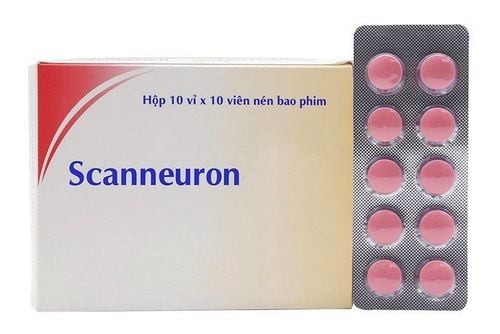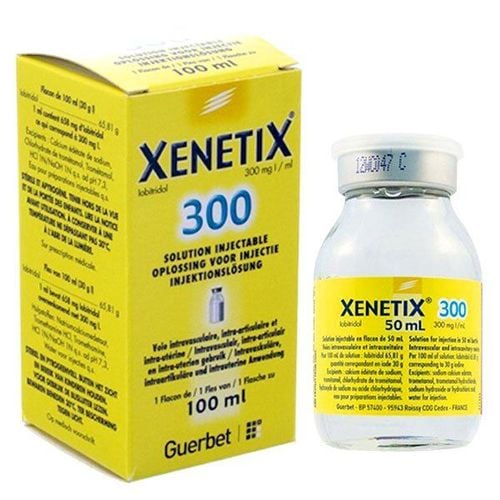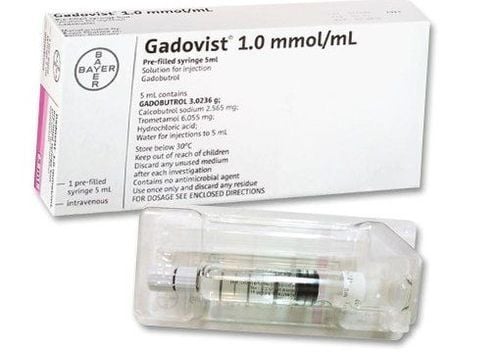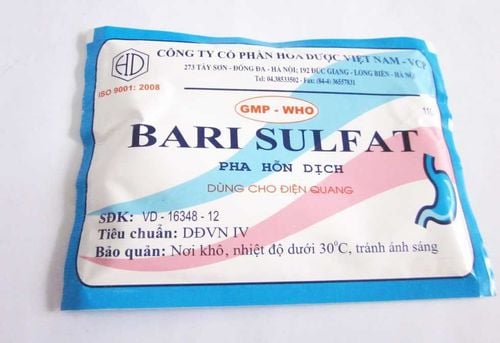This is an automatically translated article.
The article was written by Specialist Doctor I Nguyen Dinh Hung - Radiologist, Department of Diagnostic Imaging - Vinmec Hai Phong International General Hospital.Contrast agents, like all pharmaceutical drugs, are not completely risk-free. The main purpose of this guide is to assist radiologists in recognizing and managing the mild and serious risks that may actually arise during contrast media use.
1. Undesirable effects of contrast agents
Contrast side effects vary from minor physiological disturbances to rare serious life-threatening situations.Preparation for prompt treatment of allergic or anaphylactoid reactions must include preparation for the full range of potential adverse events and include: pre-arranged response planning with staff availability, equipment and medication and receive appropriate training.
Such preparation is best completed before ordering and administering contrast to the patient.
In addition, a quality improvement program and assurance of awareness and management knowledge for all radiologists.

Phản ứng dị ứng hay phản vệ với thuốc cản quang phải được chuẩn bị trước
2. Note before injecting contrast agent
Before performing contrast injection procedures for diagnostic work, it is necessary to consider the patient's medical history including:
Assess patient risks compared with the benefits of using contrast medium. Alternative imaging methods will provide similar or better diagnostic information. Ensure a valid clinical indication for each patient requiring contrast.

Cần đánh giá sức khỏe bệnh nhân trước khi sử dụng thuốc cản quang
3. Risk factors
Risk factors for the incidence of adverse reactions when using contrast agents in some patients with the following medical history and medical conditions:Previous history of allergy to iodinated contrast agents . 21-60% risk of re-reaction with repeated administration of another drug or drug in the iodinated contrast medium class. Allergic history: Asthma is the most important predisposing factor for severe reactions. There is no evidence that a seafood allergy affects the response. Cardiovascular disease (especially heart failure) Dehydration Hematologic diseases such as sickle cell anemia, erythrocytosis, myeloma Renal disease, taking nephrotoxic drugs Age: children, elderly Patients Using beta-blockers (atenolol, metoprosol, propranolol...), interleukin-2, aspirin, NSAID needs to stop using the drug completely before conducting contrast injection. Anxiety, depression.

Bệnh nhân trầm cảm có thể gây dị ứng khi dùng thuốc cản quang
4. Prepare before using the drug
Intradermal testing:
Intradermal testing with contrast to predict the possibility of an adverse reaction has not been shown to be helpful in reducing the risk of a reaction.
Use Corticosteroids Before Contrast:
The purpose of corticosteroids is to minimize the possibility of an allergic-like reaction in high-risk patients. However, many experts believe that premedication reduces the likelihood of reactions in high-risk patients receiving low-osmolar contrast media.
If during the use of contrast agent or after use. Patients who have a reaction to the drug, depending on the severity, will be treated according to the anaphylactic emergency protocol of the Ministry of Health.
Vinmec International General Hospital is one of the hospitals that not only ensures professional quality with a team of leading medical doctors, modern equipment and technology, but also stands out for its examination and consultation services. comprehensive and professional medical consultation and treatment; civilized, polite, safe and sterile medical examination and treatment space.
Customers can directly go to Vinmec Health system nationwide to visit or contact the hotline here for support.














